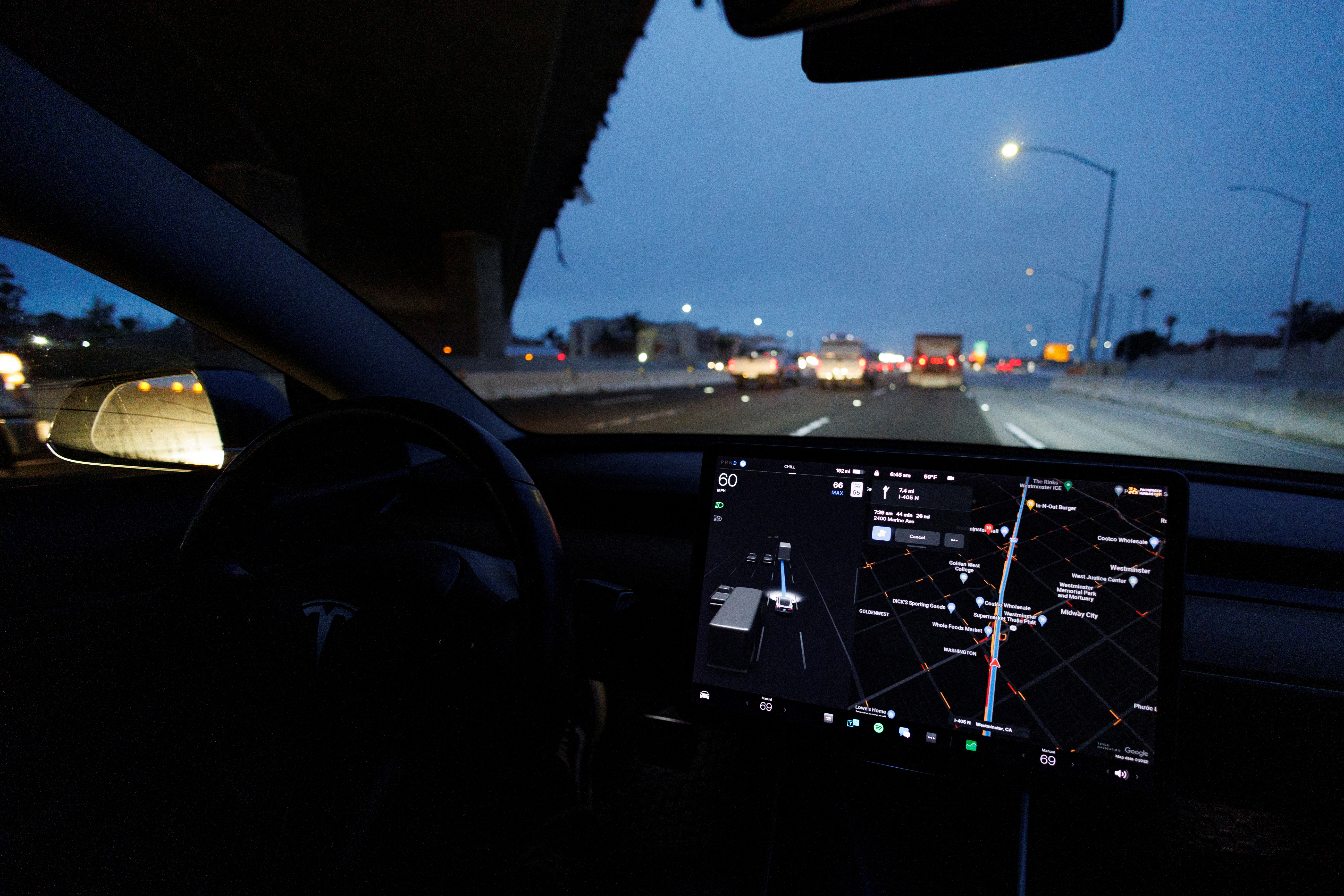LOS ANGELES, April 21 (Reuters) – A California state court jury on Friday handed Tesla Inc (TSLA.O) a sweeping win, finding the electric vehicle maker’s Autopilot feature did not fail in what appeared to be the first trial related to a crash involving the partially automated driving software.
Tesla has been testing and rolling out its Autopilot and more advanced “Full Self-Driving (FSD)” system, which Chief Executive Elon Musk has touted as crucial to his company’s future but which has drawn regulatory and legal scrutiny.
Los Angeles resident Justine Hsu sued in 2020, saying her Tesla Model S swerved into a curb while on Autopilot, and an airbag was deployed “so violently it fractured Plaintiff’s jaw, knocked out teeth, and caused nerve damage to her face.”
She alleged defects in the design of Autopilot and the airbag, and sought more than $3 million in damages.
Tesla denied liability for the accident and said in a court filing that Hsu used Autopilot on city streets, despite a user manual warning against doing so.
In Los Angeles Superior Court on Friday, the jury awarded Hsu zero damages. It also found that the airbag did not fail to perform safely, and that Tesla did not intentionally fail to disclose facts.
After the verdict, jurors told Reuters Tesla clearly warned that the partially automated driving software was not a self-piloted system, and that driver distraction was to blame. Tesla shares gained 1.3% to close at $165.08 on Friday.
Hsu broke down in tears outside the courtroom after the jury delivered its verdict. One of her attorneys, Donald Slavik, expressed disappointment with the result. Tesla attorney Michael Carey declined to comment.
Ed Walters, who teaches a course on autonomous vehicles at Georgetown Law, called the verdict a “huge win” for Tesla.

[1/2] A Tesla Model 3 vehicle drives on autopilot along the 405 highway in Westminster, California, U.S., March 16, 2022. REUTERS/Mike Blake
“This case should be a wakeup call to Tesla owners: they can’t over-rely on Autopilot, and they really need to be ready to take control and Tesla is not a self-driving system,” he said.
CRITICAL TIME FOR TESLA
Tesla calls its driver-assistant systems Autopilot or Full Self-Driving, but says the features do not make cars autonomous, and drivers should be “prepared to take over at any moment.” The company introduced Autopilot in 2015, and the first fatal accident in the U.S. was reported in 2016. That case never went to trial.
The Hsu trial unfolded in Los Angeles Superior Court over three weeks, with testimony from three Tesla engineers. The company has been bracing for a spate of other trials related to the semi-automated driving system, which Musk has claimed is safer than human drivers.
The main question in Autopilot cases was who is responsible for an accident while a car is in driver-assistant Autopilot mode – a human driver, the machine, or both?
“When fatalities are involved, and they are on highways, jury perspectives can be different,” said Raj Rajkumar, professor of electrical and computer engineering at Carnegie Mellon University.
“While Tesla won this battle, they may end up losing the war,” he said, with people realizing Tesla’s tech is “far from becoming fully autonomous” despite Musk’s repeated promises over years.
The trial’s outcome is not legally binding in other cases, but experts said they consider it a bellwether to help Tesla and other plaintiffs’ lawyers hone their strategies.
Cassandra Burke Robertson, professor at the Case Western Reserve University School of Law who has studied self-driving car liability, said early cases “give an indication of how later cases are likely to go.”
The U.S. Justice Department is investigating Tesla’s claims about self-driving capabilities and the National Highway Traffic Safety Administration is probing safety of the technology.
Reporting by Abhirup Roy in Los Angeles and Hyunjoo Jin and Dan Levine in San Francisco
Editing by Peter Henderson and Matthew Lewis
: .

